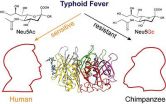Using comments and concerns drawn from in-depth interviews of 18 physicians and two home health care agency administrators -- all experienced in trying to coordinate care of older adults -- the researchers created a framework for evaluating what actions and programs might improve care. For example, they say, more attention should be given to preventing drug errors or missed doses of medicine, earlier and more frequent communications among health care providers at different sites, the elimination of discharge planning delays, and patient education.
Moreover, they caution that strategies already planned or in use to improve coordination, such as pay-for-performance targets and educational interventions, need further study to determine their value and any unintended consequences. Improving care transitions, for example, is a high priority in the Affordable Care Act of 2010, which established a pay-for-performance financial incentive program to motivate better coordination. The study results suggest, however, that health care providers are unclear about how these incentives will be designed and are concerned that the wrong outcomes or processes will be measured.
"For a pay-for-performance strategy to be successful and improve patient care, health care providers must have a voice in the design process," says report lead author Alicia I. Arbaje, M.D., M.P.H., director of transitional care research and assistant professor of medicine at Johns Hopkins Bayview Medical Center and the Johns Hopkins University School of Medicine. "Currently, health care providers have concerns about pay for performance that need to be considered."
In their report on their work, "Excellence in Transitional Care of Older Adults and Pay-for-Performance: Perspectives of Health Care Professionals," published in the December 2014 issue of The Joint Commission Journal on Quality and Patient Safety, the investigators note the persistent "mixed reviews" of the impact of tying compensation to quality of care. They also say that care transitions across health care settings remain "common, complicated, costly and potentially hazardous for older adults." As the ranks of older adults grow and their numerous illnesses require ever more drugs, specialists and facilities, poor transitional care frequently leads to rehospitalizations and complications for patients.
The problems have been well documented in other studies, the researchers say, but they believe their assessment is the first to examine pay for performance from the perspective of health care professionals with frontline experience in transitional care. Participants included internists who worked in acute care academic medical centers, rehabilitation facilities, outpatient and community-based primary care settings, and home health care administrators. By analyzing in-depth interviews of health care professionals actively involved in care transitions, the research team uncovered three themes that addressed pay for performance: components and markers of effective care transitions, difficulties in design and implementation of pay-for-performance strategies, and unmet needs in delivering optimal care during transitions.
The findings suggest ways to better define health care providers' roles in care transitions, enhance communication, determine performance measurements, and improve education and training of providers. Among the recommendations in the framework are calls for holding health care providers more accountable for patient education, reimbursing providers for care coordination activities, and providing training and hands-on experience for providers to facilitate care transitions.
Arbaje explains, "Health care providers may need additional training to better execute care transitions and to understand their role during transitions. Without this education, it is difficult to design pay-for-performance strategies with an end result of good patient care."
INFORMATION:
Other authors of the report are Alison R. Newcomer, M.H.S., and Joseph A. Carrese, M.D., M.P.H., of the Johns Hopkins University School of Medicine; Kenric A. Maynor, M.D., M.P.H., of the Geisinger Wyoming Valley Medical Center; Robert L. Duhaney, M.D., an internist in Addison, Texas; and Kathryn J. Eubank, M.D., of the San Francisco VA Medical Center and the University of California, San Francisco.
Arbaje and Maynor are former Robert Wood Johnson Clinical Scholars at The Johns Hopkins University, supported by the Robert Wood Johnson Foundation grant #047945, Princeton, New Jersey. Arbaje and Eubank are former clinical and research fellows in the Johns Hopkins Division of Geriatric Medicine and Gerontology, supported by the National Institute on Aging grant #T32-AG-000120. Eubank is a former T. Franklin Williams Scholar and received fund¬ing from Atlantic Philanthropies, the American Geriatrics Society's Health in Aging Foundation, the John A. Hartford Foundation and the Association of Subspecialty Professors. Arbaje is a former Robert Wood Johnson Foundation Minority Medical Faculty Development Program Scholar, supported by grant #63518. She also received support from the John A. Hartford Foundation and the National Pa¬tient Safety Foundation.
Johns Hopkins Bayview Medical Center, located in Baltimore, Maryland, is a full-service, Joint Commission-accredited academic medical center. Among the wide range of services offered are an areawide trauma center and the state's only regional adult burn center. Founded in 1773, our 565-bed facility features several centers of excellence, including stroke, geriatrics, joint replacement, wound care and bariatrics. As part of the Johns Hopkins Health System, our physicians hold full-time faculty positions at the Johns Hopkins University School of Medicine. For more information, visit http://www.hopkinsmedicine.org/jhbmc.
Contact: Karen Tong
ktong4@jhmi.edu; 410-550-0128





